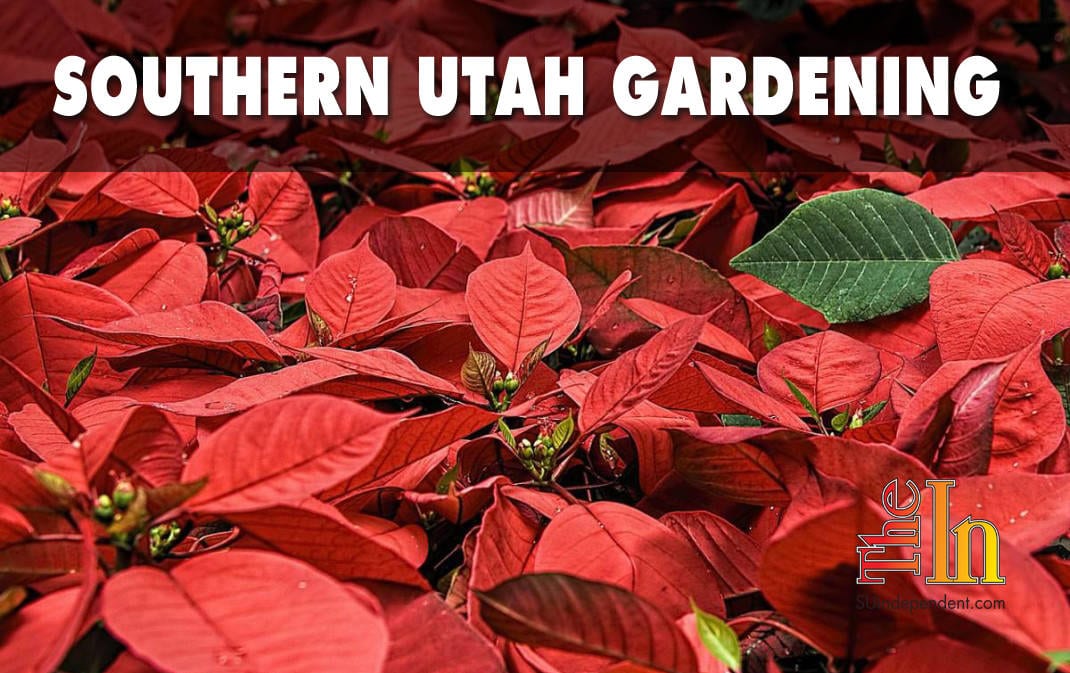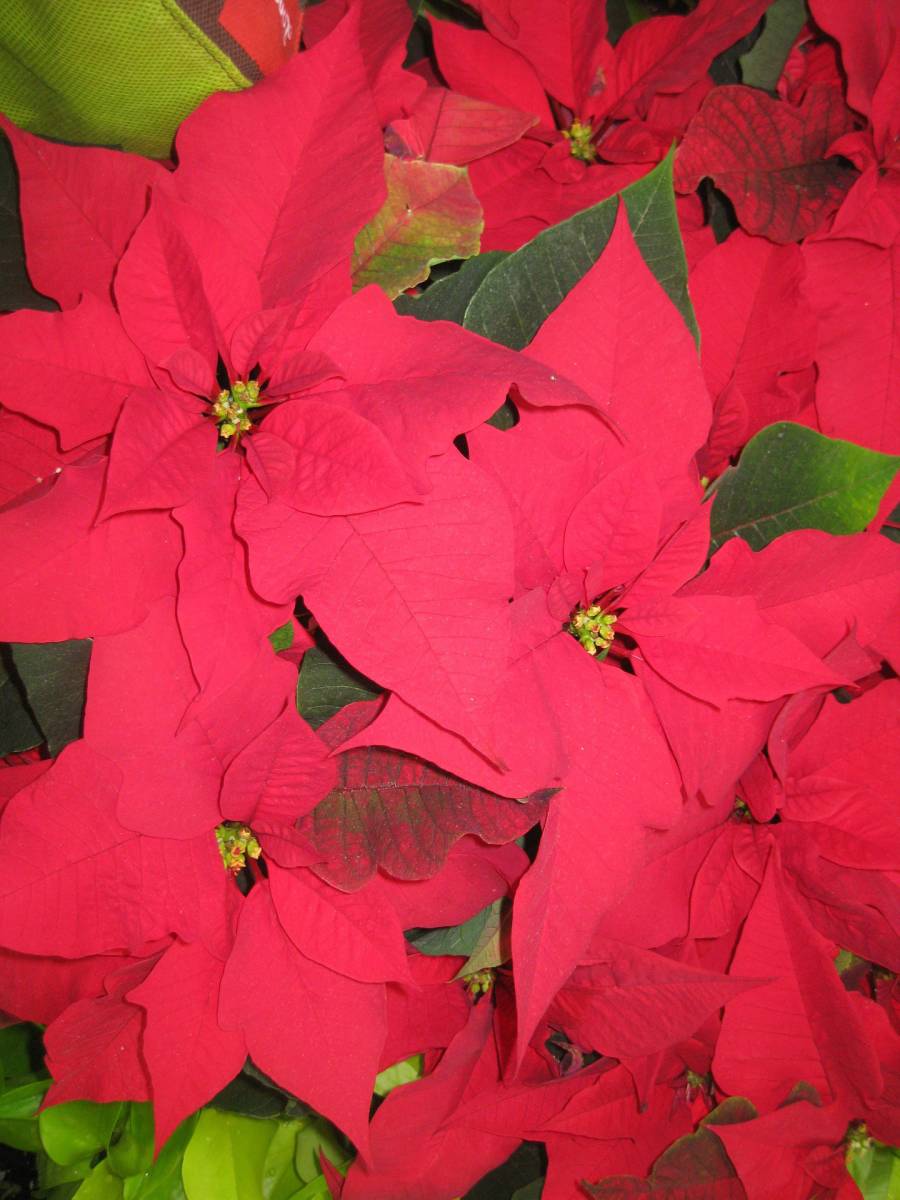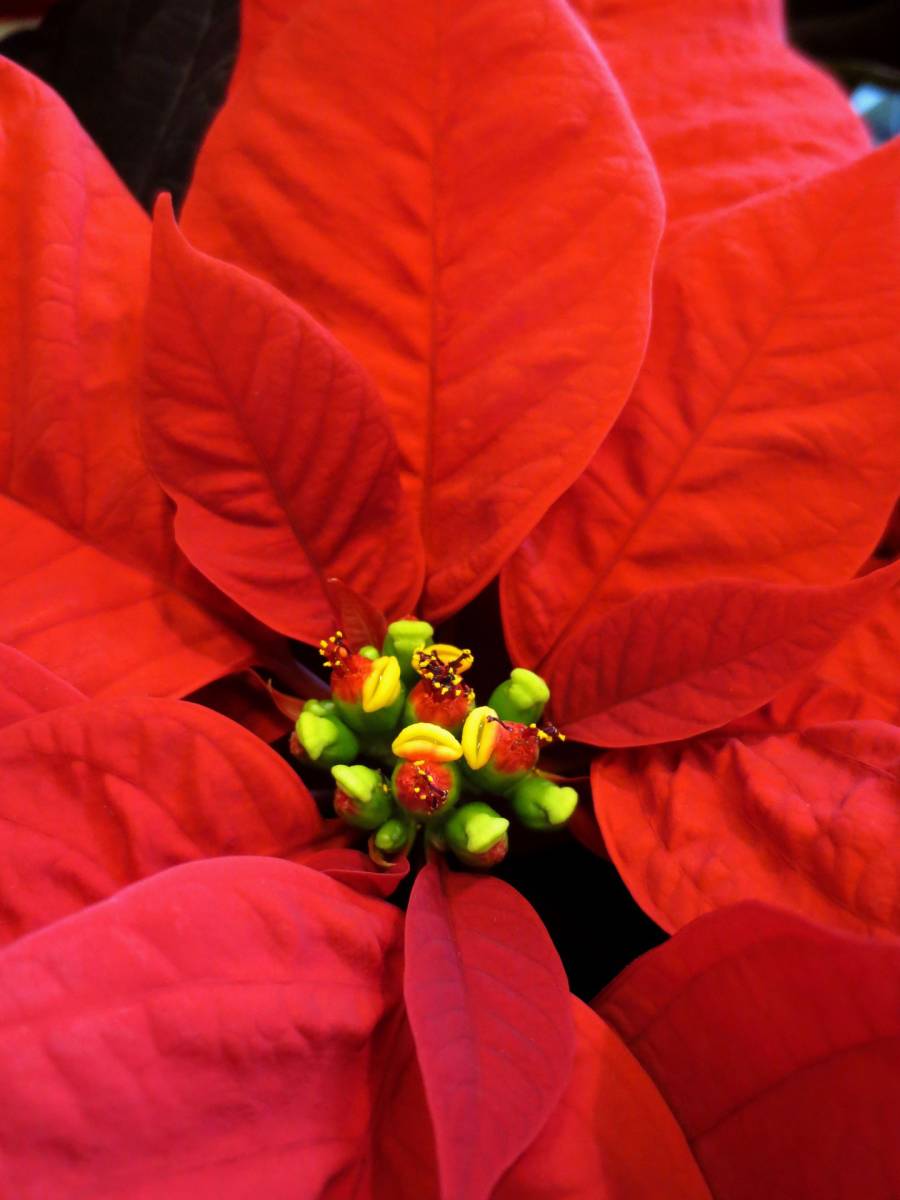 Written by Jerry Goodspeed, USU Extension horticulturalist
Written by Jerry Goodspeed, USU Extension horticulturalist
The holidays are definitely over, and as we find ourselves two weeks into January, you may find that you have a tired-looking poinsettia you are not sure what to do with. If you know how to keep poinsettias alive, they can actually brighten your home for months to come with proper care and attention.
Poinsettias are native Mexican plants. They thrive during the holiday season because they are short-day plants that require long nights to launch their color change. The colorful bracts of these plants are leaves, not flowers, with the most common bract color being red. The flower buds are the red or green buttons in the center of the bracts that open to a small, yellow flower. Healthy poinsettias have dark green leaves below the bracts and foliage all the way to the base.
 Consider these tips to keep your poinsettia looking bright.
Consider these tips to keep your poinsettia looking bright.
Poinsettias need a minimum of six hours of indirect sunlight each day.
Protect the plants from freezing temperatures, especially when transporting them. Place them in a light-filled room away from drafts. They do best in rooms between 55 and 65 F at night and 65 to 70 F during the day. Keep poinsettias away from cooler locations, and avoid exposing them to temperatures below 50 F.
Water poinsettias when the soil is dry 2 to 3 inches down. The plants are very sensitive to overwatering and will develop root rot quickly if kept too wet. Water thoroughly, and let excess water drain out of the container bottom.
Apply an all-purpose, water-soluble fertilizer once a week to keep plants healthy during the holidays. Once the colorful bracts drop off, reduce watering and fertilization to give the plants a rest period. Trim the poinsettia back so that just a few leaves are left.
 With proper care, poinsettia bracts can be maintained until about March or April. Once they begin to fall, cut the plant back, leaving about six buds. For the first couple of weeks, the plant will resemble a stick. Water and fertilize as before, and by May it will begin to leaf out again.
With proper care, poinsettia bracts can be maintained until about March or April. Once they begin to fall, cut the plant back, leaving about six buds. For the first couple of weeks, the plant will resemble a stick. Water and fertilize as before, and by May it will begin to leaf out again.
For an interesting and unusual outdoor plant, poinsettias can be taken outside in the spring when the danger of a freeze has passed. Placed in a shady location, poinsettias can be enjoyed throughout the summer.
To keep the plant small and compact, cut it back about mid-July and again in early September to stimulate branching.
Beginning the first of October, put the plant in complete darkness as soon as the sun sets, allowing a minimum of 14 hours of darkness. A bag can be placed over the plant, or it can be set in a closet throughout the day. By the end of November, it will start to color, and you will be able to enjoy it for another season.
Jerry Goodspeed is a Utah State University Extension horticulturist. He can be reached at (435) 919-1276 or jerry.goodspeed@usu.edu.



